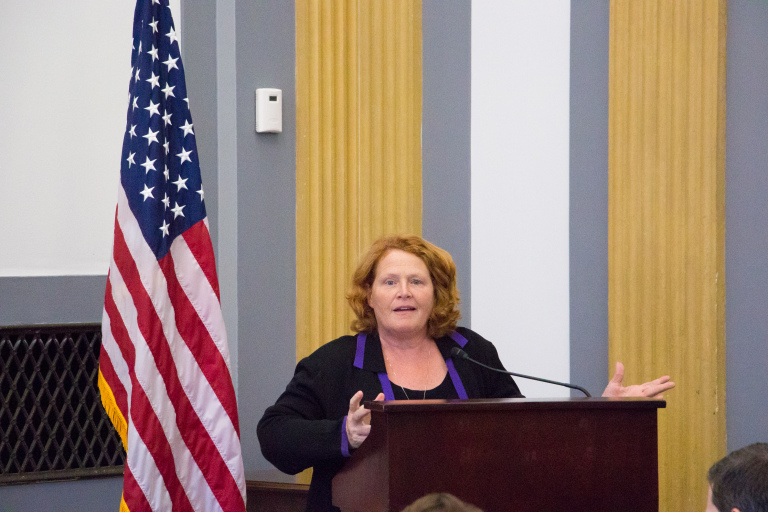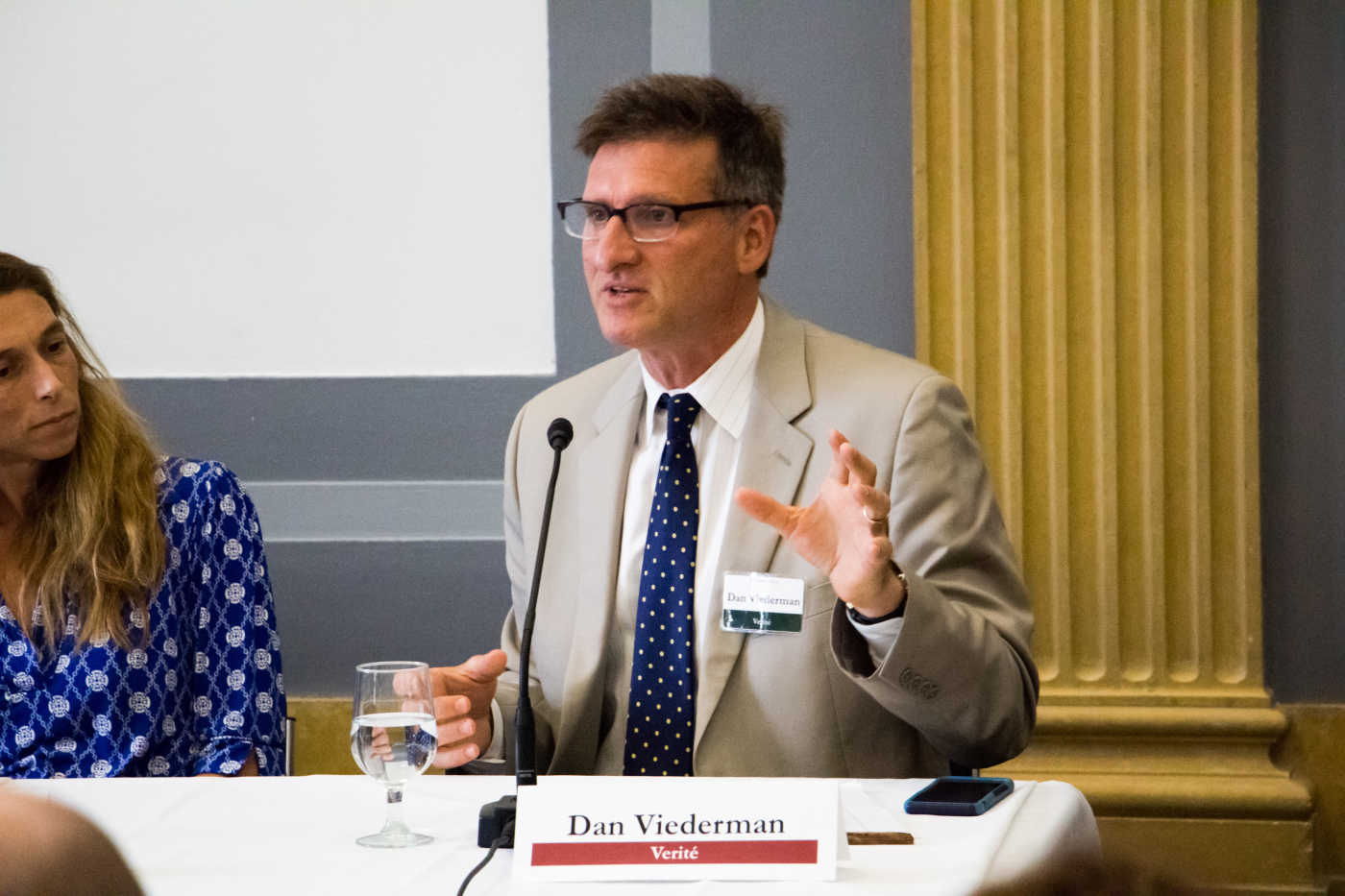When Concordia made the decision to employ a campaign model to have a more “on-the-ground” impact on a specific topic, it turned to its stakeholders for direction. At the 2014 Concordia Summit, the most popular session was a panel on sex trafficking and its pervasiveness in the United States. The overwhelming interest in this topic from organizations and individuals alike prompted Concordia to focus on human trafficking for its first campaign.
Concordia launched the campaign on July 8th with a special event in Washington, D.C. “We want to grow the campaign organically,” said Concordia Campaign Director, Natalie Pregibon. “it is critical to take the time to truly understand how a platform like Concordia can have the greatest impact.” The event featured remarks by Senator Heidi Heitkamp of North Dakota followed by a substantive panel discussion on the role of business in human trafficking.
 Human trafficking encompasses both sex trafficking and labor trafficking, but as Senator Heitkamp mentioned, labor trafficking may not have the same “caché” as sex trafficking, generating less media and public attention, and thus less action. However, labor trafficking permeates far more industries and claims far more victims than sex trafficking. Senator Heitkamp emphasized that, “We need to have the same social response and sense of responsibility to labor trafficking as we do sex trafficking.” And this is exactly what the Concordia campaign will attempt to do.
Human trafficking encompasses both sex trafficking and labor trafficking, but as Senator Heitkamp mentioned, labor trafficking may not have the same “caché” as sex trafficking, generating less media and public attention, and thus less action. However, labor trafficking permeates far more industries and claims far more victims than sex trafficking. Senator Heitkamp emphasized that, “We need to have the same social response and sense of responsibility to labor trafficking as we do sex trafficking.” And this is exactly what the Concordia campaign will attempt to do.
Panelists included Kilian Moote, Project Director at KnowTheChain.org at Humanity United, Nina Smith, Founding Executive Director, GoodWeave International; Rob Lederer, Executive Director, Electronic Industry Citizenship Coalition; Genevieve Taft-Vasquez, Global Manager, Workplace Rights, The Coca-Cola Company; and Dan Viederman, CEO, Verité, who collectively participated in a granular discussion about the challenges and opportunitites of combatting labor trafficking.
The dialogue shed light on the pervasiveness of labor trafficking and the evolving role of business in understanding and combatting the issue. Rob Lederer said: “Corporations are realizing no one is exempt. The issue touches every level of the supply chain, and the tide is turning towards action.”
Panelists acknowledged that it is neither an easy nor a straightforward process for companies to identify and remediate issues in their supply chains, given the sometimes-byzantine nature of large, multinational corporations. Self-reflection is the first step in an often slow, but forward-moving process. As Genevieve Taft-Vasquez explained, “What may start as a campaign for advocacy…is a catalyst for corporate action.”
Moving from acknowledgement to action requires overcoming obstacles, from ambiguities and opaqueness in companies’ contractor and subcontractor arrangements to the varying regulatory environments within which industries operate. Organizations like Verité advise companies on navigating these barriers and developing comprehensive approaches to addressing issues. A coordinated effort among all stakeholders – companies, governments, and nonprofits – is necessary to create an environment in which companies and industries have the tools and support for clean supply chains.
All panelists agreed that first steps with small, proven measures in the fight to eradicate labor trafficking include banning company holding of employee passports and documentation, prohibiting recruitment and onboarding fees directed at employees, and providing written employment contracts. More comprehensive best-practice frameworks – particularly for different industries – can be created at the nexus of industry collaboration and constructive nonprofit and government involvement.



